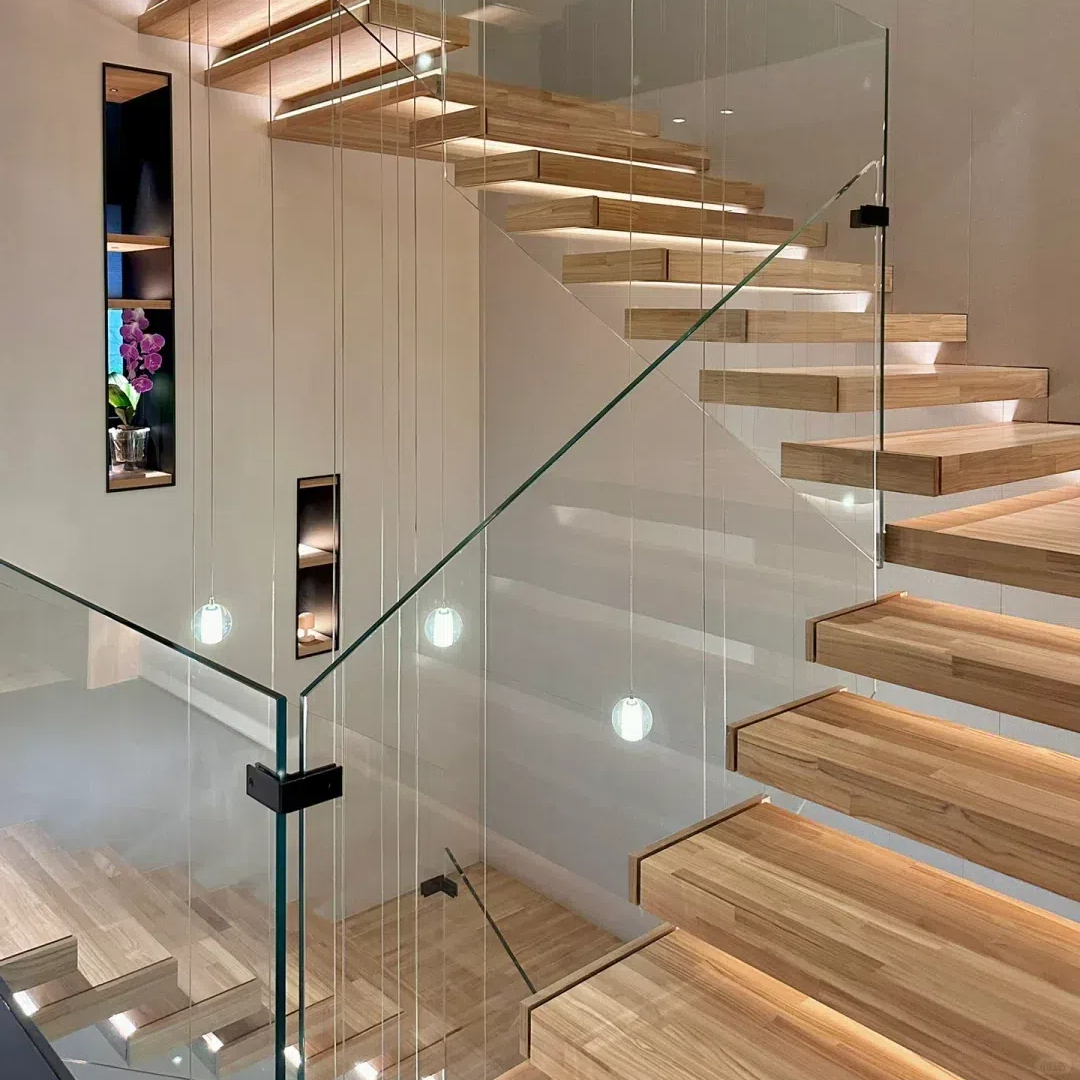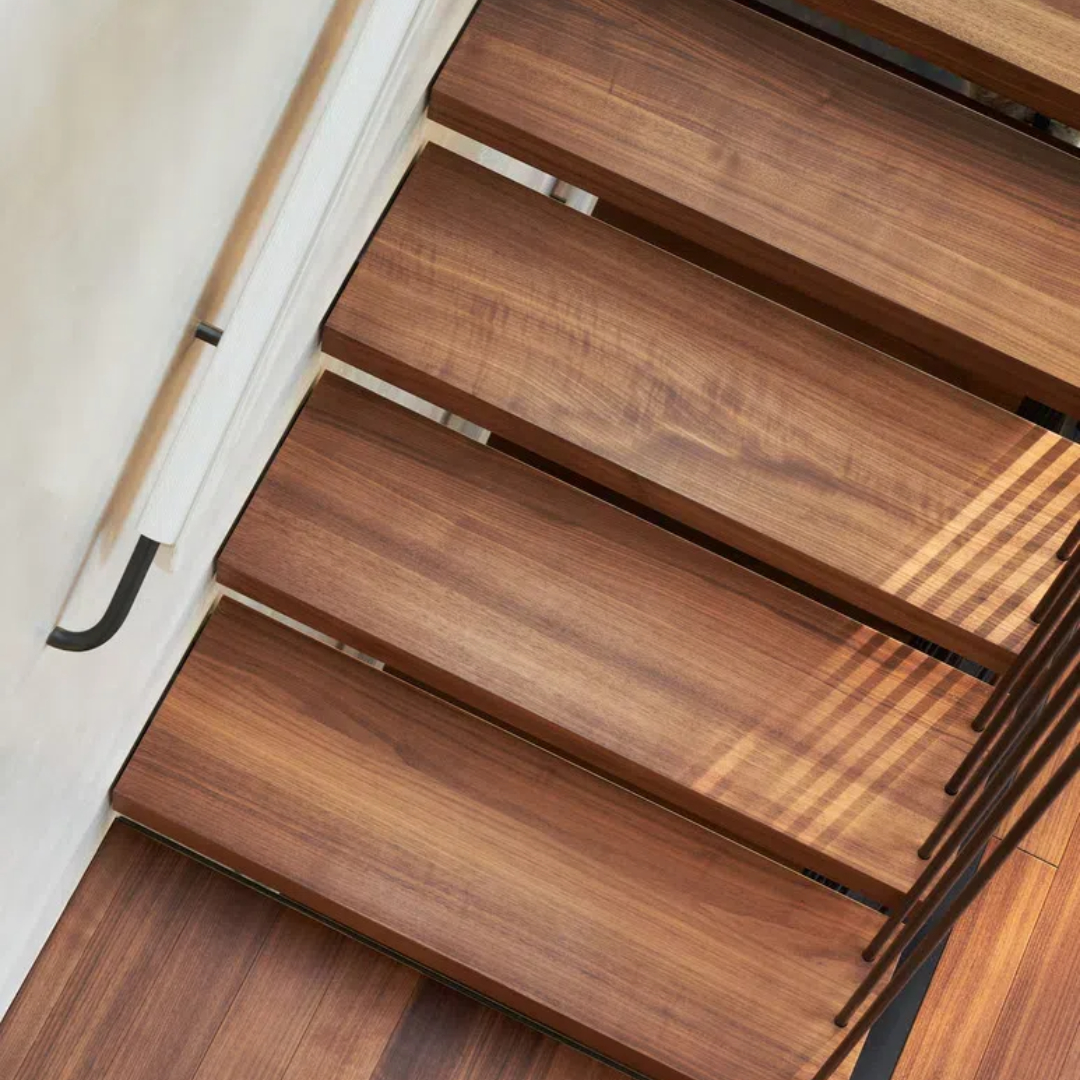How to Choose Wood for Stair Treads?
I. Introduction
Choosing the right wood for stair treads is an essential decision that combines both aesthetic appeal and practical functionality. Stair treads are not only a critical structural element in a home but also a prominent visual feature that can enhance the overall interior design. The type of wood you select can greatly impact the look and feel of your staircase, as well as its durability and longevity.In this article, we will guide you through the key factors to consider when selecting wood for stair treads and introduce you to popular wood options.
II. Factors to Consider When Choosing Wood for Stair Treads
Durability and Hardness
When selecting wood for stair treads, durability and hardness are primary considerations. Stair treads endure heavy foot traffic and need to resist wear and tear over time. The hardness of the wood is often measured using the Janka hardness scale, which indicates the wood's ability to withstand dents and dings. Hardwoods such as oak, maple, and hickory are popular choices due to their robustness and long-lasting qualities. These woods are less likely to scratch or dent, making them ideal for high-traffic areas like staircases.
Aesthetics and Color
The aesthetic appeal of your floating staircase largely depends on the wood's color, grain pattern, and texture. Different wood species offer a variety of looks, from the fine, uniform grain of maple to the bold, dramatic patterns of hickory. Light-colored woods like ash or maple can make a space feel more open and airy, while darker woods like walnut or mahogany add a touch of elegance and warmth. When choosing wood, consider how it will complement your home's existing décor and whether you want the floating stairs to blend in seamlessly or stand out as a design feature.

Cost and Budget
Your budget will play a significant role in determining the type of wood you can afford for your stair treads. Wood species vary widely in price, with more common woods like oak and pine being more affordable, while exotic or premium woods like walnut or cherry can be more expensive. It’s important to balance cost with quality; investing in a more durable wood may save you money in the long run by reducing the need for repairs or replacements.
Sustainability and Environmental Impact
In today’s environmentally conscious world, many homeowners prioritize sustainability when selecting building materials. Choosing wood that is sustainably sourced is not only better for the environment but also ensures that forests are managed responsibly. Look for certifications such as the Forest Stewardship Council (FSC) label, which guarantees that the wood comes from responsibly managed forests. Additionally, consider reclaimed wood as an eco-friendly option that adds character and history to your home.
Maintenance and Longevity
Maintenance is another critical factor when choosing wood for stair treads. Some woods require more care to keep them looking their best. For example, softer woods might need more frequent refinishing to repair scratches or dents. On the other hand, hardwoods like oak or maple are low-maintenance and can maintain their appearance with minimal upkeep. The type of finish you apply, whether matte, satin, or glossy, also influences the wood’s durability and how often it needs maintenance.
III. Popular Wood Options for Stair Treads
Oak
Oak is one of the most popular choices for stair treads due to its strength, durability, and timeless appearance. Available in both Red Oak and White Oak, this wood offers a versatile look that suits a wide range of interior styles, from traditional to contemporary. Red Oak has a warm, reddish tone with a prominent grain pattern, while White Oak has a slightly cooler, more neutral color with a finer grain.
Oak Wood Stair Treads embody a blend of strength, elegance, functionality, and environmental responsibility that make them a standout choice for staircases. Firstly, Strength & Durability are hallmark features of oak. Its dense grain structure imparts exceptional durability, enabling the stair treads to withstand heavy foot traffic and withstand wear and tear over time. This longevity ensures that your staircase retains its structural integrity and aesthetic appeal for years to come.
Furthermore, Oak Wood Stair Treads exude Natural Elegance. Oak's rich hues and pronounced grain patterns create a striking visual impact, adding sophistication and warmth to your staircase. This natural beauty enhances the overall appeal of your space, creating a sense of grandeur and elegance that will impress guests and family alike.
In addition, Oak offers Sound Insulation properties that contribute to a peaceful home environment. Its inherent hardness absorbs sound, reducing noise as you traverse the stairs. This feature is particularly valuable in multi-story homes or offices where quietness is crucial for work, relaxation, or sleep.
Lastly, Oak Wood Stair Treads align with Sustainable practices. As a renewable resource, oak is sourced responsibly from managed forests, ensuring that the environment is protected while meeting the demands of homeowners who prioritize eco-friendliness. By choosing oak stair treads, you make a smart investment in your home's beauty, durability, and environmental responsibility.

Beech
Beech Wood Stair Treads embody an exceptional blend of elegance, strength, and versatility, making them an ideal choice for enhancing the functionality and aesthetics of any staircase. Their natural grain patterns and warm hues harmoniously integrate with a variety of decor styles, enhancing the overall visual appeal of your stairway. As a hardwood, beech boasts remarkable durability, effectively resisting scratches, dents, and warping, ensuring a long-lasting beauty even in high-traffic areas.
Not only do beech stair treads offer unparalleled durability, but they also demonstrate remarkable stability against moisture fluctuations. This feature is particularly advantageous in environments prone to humidity changes, as it maintains the structural integrity of the treads, preventing warping or damage that might occur with less resilient materials. Additionally, beech's smooth texture simplifies cleaning and maintenance, ensuring that your stairway remains pristine and inviting with minimal effort.
Versatility is another defining characteristic of Beech Wood Stair Treads. Their neutral tones and subtle grain patterns blend seamlessly with diverse interior design styles, from cozy homes to sleek commercial spaces. This adaptability allows them to complement a wide range of aesthetics, adding a touch of sophistication and warmth to any setting. Moreover, their responsiveness to cutting and shaping enables custom designs, further enhancing their versatility.
In summary, Beech Wood Stair Treads represent a smart investment that combines beauty, durability, and low-maintenance care. With their smooth texture, adaptability, and moisture resistance, these stair treads are an attractive choice for enhancing the functionality and aesthetics of your staircase. They are a versatile solution that will stand the test of time, maintaining their pristine appearance and structural integrity for years to come.
IV. Conclusion
In conclusion, the decision to opt for timber stair treads is one that is rooted in a blend of aesthetics, practicality, sustainability, and versatility. By choosing wood for your staircase, you are investing in a timeless design element that will not only enhance the beauty and charm of your home but also stand the test of time, ensuring that your stairs remain a source of pride and joy for years to come.
